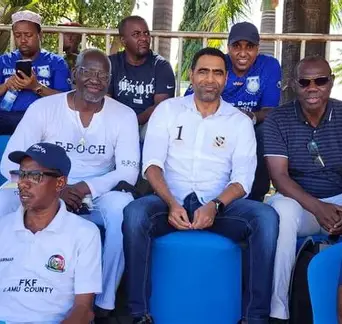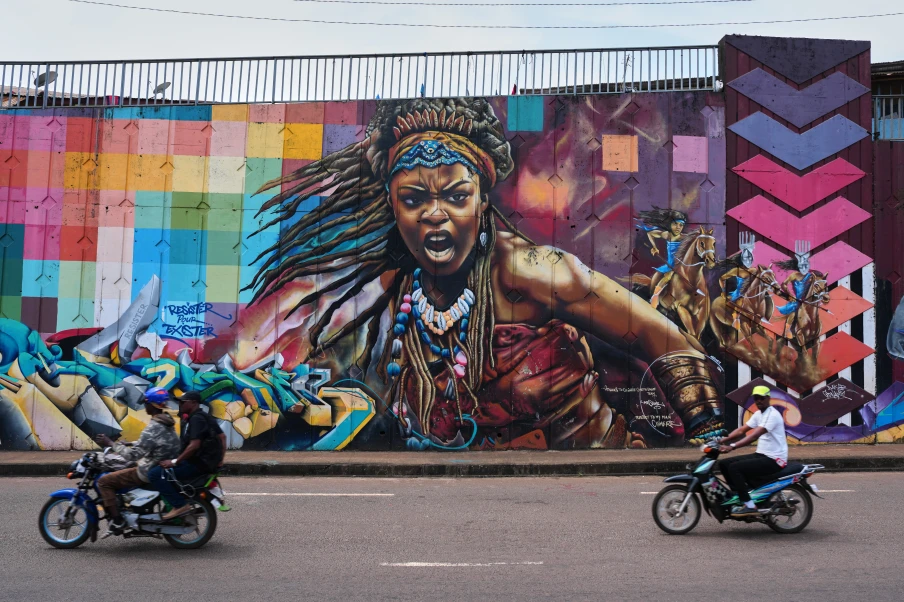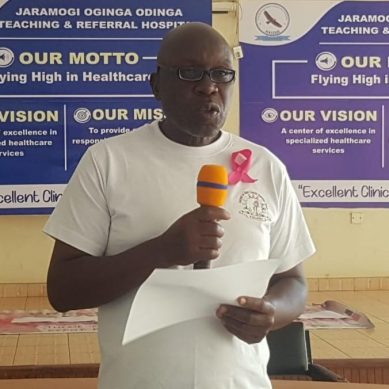
He says:
We have met most of the goals and aspirations of our people. We have made giant steps in our endeavour to improve the quality of life for all Ugandans. We have built a firm foundation to steer the economy for social transformation and economic take-off into self-sustaining growth. Under the leadership of National Resistance Movement (NRM), our democracy has deepened and blossomed to full maturity, to the extent that anyone can now dream of leading Uganda. At every definitive stage on our long journey, the visionary leadership of NRM has always championed progressive policies and programmes to steer the country forward.
Duncan Abigaba (2016), writing in ChimpReports says, “The mission of NRM isto transform Uganda from a poor peasant society into a modern, industrial, united and prosperous society.”
Yoweri Tibuhaburwa Museveni alias Yoweri Kaguta Museveni for most of his more than 38 years in power has mentioned many times to indicate that he is not just occupying the seat of president, but that he is taking Uganda to another level, even if his philosophy of governance embodies “No Change.” If you have been following President Tibuhaburwa Museveni’s politics of governance, then you will find it easy to mention liberation, development, modernisation, privatisation, transformation, progress and value addition as integral ideas to his belief that he is the only one who can steer Uganda from a poor peasant society into a modern, industrial, united and prosperous society under the stewardship of his political organisation, NRM.
Museveni does not want to remember how his NRA rebel outfit wrecked the economy during its five-year insurgency from 1981 to 1986 or through de-institutionalisation and subjugation of every surviving institution to the Presidency and/or his personal power.
What President Museveni never mentions is that he has been sowing the seeds of the now discredited neoliberal revolution, which unfortunately is prone with many problems and issues, including patronage, corruption, nepotism, ethical moral decay, ethnic purity in business, leadership, and exploitation and use of Uganda’s natural resources and democratic erosion.
The use of the term “neoliberal” exploded in the 1990s, when it became closely associated with two developments. One of these was financial deregulation, which would culminate in the 2008 financial crash and in the still-lingering euro-debacle. The second was economic globalisation, which accelerated, thanks to free flows of finance and to a new, more ambitious type of trade agreement. Financialisation and globalisation have become the most overt manifestations of neoliberalism in today’s world, according Dan Rodrik.
Neoliberalism is contemporarily used to refer to market-oriented reform policies such as “eliminating price controls, deregulating capital markets, lowering trade barriers” and reducing, especially through privatisation and austerity, state influence in the economy.
Unfortunately, no real debate of issues related to Uganda’s neoliberal stance is going on, even at our numerous university campuses. Anrew Mwenda (2024) summarises the situation thus: There is a huge emptiness in public debate in Uganda. What goes for public debate is either narrow managerial technocratic talk or partisan shouting matches on radio, television and social media. Yet public debate should focus on issues such as what is the Uganda we want? How do we build and sustain a collective identity and find pride and meaning in the idea of being Ugandan? How do we ensure fairness and justice to all citizens? How do we promote national solidarity and pursue those things that bring us together? This is the kind of intellectual climate President Museveni has created to impose a neoliberal revolution on Uganda almost unchallenged by serous intellectual questioning. There is a conspiracy of silence informed by fear.
In Egypt and Tunisia (Karen Social movements grew in opposition to this neoliberal polity and economy among both the middle and working classes. When the economic crisis of 2008-2010 caused a slowdown in economic growth and aggravated unemployment and poverty, the opposition movements grew stronger and more interconnected. To hold power, the ruling elite intensified electoral fraud and the often-brutal repression of opposition movements. The final insult was the manoeuvring by the ruling families to convert their presidential systems to dynastic rule. By the end of 2010, these forces converged into a perfect storm that led to the overthrow of Presidents Ben Ali and Mubarak.
Scott Sumnar (2010) wrote that the neoliberal revolution has been widespread and highly successful, and cited Britain, USA, Australia, Japan, Hong Kong, Singapore, Canada, France, Germany, Sweden and Switzerland as the islands of successful neoliberal revolution.
In Uganda President Museveni prefers his neoliberal revolution to be fertilised by a command-obey economy, in which only what he perceives, thinks and believes should be the way forward for the economy is what he bull-doses, often ignoring the thinking of the professionals of economics, let alone leaders in different stations of life.
This is what we are witnessing regarding Ugandan coffee, which the president wants to be run and dominated by fallen Mammuar Ghaddafi’s sister called Enric Pinetti. Unfortunately, where certain islands of the economy have been put in the hands of foreigners, they have served the interests of certain agents of the NRM regime instead. During a recent meeting at his Kisozi farm with the NRM parliamentary caucus, the president baptised those who had divergent thinking from his own choices regarding coffee “law breakers misleading the people of Uganda, Apparently the people he is characterising as criminals or law breakers include Dr. Ezra Suruma, who told the nation that he was behind the creation of Uganda Development Coffee Authority (UCDA).
The president’s thinking is a no–change thinking, but the truism is that neoliberalism has failed as economic and social policy, although this does not mean that markets never work. Dan Rodrik (2017) has noted the fatal flaws of neoliberalism. He says that neoliberalism and its usual prescriptions – always more markets, always less government – are in fact a perversion of mainstream economics. He stresses the practical failure of neoliberal policies. He regards it as hyperglobalism.
Don Rodrik (2017) goes on: “The term is used as a catchall for anything that smacks of deregulation, liberalisation, privatisation or fiscal austerity. Today it is routinely reviled as a shorthand for the ideas and practices that have produced growing economic insecurity and inequality, led to the loss of our political values and ideals, and even precipitated our current populist backlash. Robbert Kuttner (2919) more or less agrees when he writes, “Market fundamentalism has been unmasked as bogus economics but keeps winning politically.”
No doubt President Museveni has cast himself as the most forthright market fundamentalist in Africa because of the political dividends he gets from such a stance. It predisposes him to listen to only what is in his mind and kill alternative ideas even if they are superior. It enables him to dismiss opposition as a group of people undermining the development, transformation and progress of the country.
The political reversal of neoliberalism can only come through practical politics and policies that demonstrate how government often can serve citizens more equitably and efficiently than markets. (Robert Kuttner, 2019). However, the president of Uganda has not been unequivocal in his belief that identity is inferior to interests and that, therefore, we should take interests as the prime of the times. This explains why he is ready to ignore the advice of economic professionals such as Dr Ezra Suruma or the people of the main areas that we identify as coffee growing areas.
Museveni is not ready to listen to their interests, despite his belief that it is interests that matter. It is exogenous interests that he raises over and above the identities that tick because of coffee. He believes he is transforming Uganda from what it was when he captured the instruments of power in 1986. However, some people think that the president has experienced far more political success than economic success over the last 38 years; a consequence of his commitment to neoliberalism. We are still lucky we have not yet fallen into the political and economic doldrums of the former neoliberal Tunisia and neoliberal Egypt.
The tile of this article is “Uganda: Transformational or Transactional Leadership in the 21st Century? As I have indicated above the term transformation is integral to Museveni-speak, However, Transaction is not heard of in Museveni-speak although
ugh it predominates in the economy of Uganda presided over by President Tibuhaburwa Museveni. The first time I heard the President talking about transactional politics was when he warned NRM Members of Parliament not to engage in transaction politics (see also Andrew Mwenda, 2023). Yeat this is the hallmark NRM politics, which explains why Uganda’s leadership is more transactional than transformational.
Bismar Harris Satriawan, Vivi Friskila Angela (2024) have written an informative article ‘Democracy disrupted: high political cost, transactional politics and corruption’ confirming that in neoliberal economies such that of Uganda, democracy is ever eroded, the political costs are very high and transactional politics and corruption dominate alongside patronage politics, huge donor monies and NRM regime consolidation at the expense of social development (Andrew M. Mwenda and Roger Tangri, 2005). This can explain why the president of Uganda can praise his brother Salim Saleh Akandwanaho’s contribution to the economy of Uganda as being greater than that of institutions such as UCDA. Indeed, a lot of taxpayer’s money flows into Operation Wealth Creation (OWC) although a miniscule of Ugandans have benefited from its huge financial outlay.
President Museveni’s neoliberal Uganda (Jörg Wiegratz, Giuliano Martiniello and Elisa Greco (2019; Lillehagen Hansen, 2021) has been socially, ecologically, economically, culturally, ethico-morally and environmentally costly to the indigenous Ugandans. They have lost land and underground and water-based resources to refugees, former refugees, Indians and Chinese through land grabbing and lake grabbing, thereby becoming internally displaced people and protein-starved.
Meanwhile investment in education, health and agriculture – the social areas – has plummeted over the decades, thanks to transactional leadership and transactional politics. There is nothing transformational about these multi-pronged phenomena.
But what is transactional leadership or transactional politics and what is transformational leadership or transformational politics?
Many people have written about transactional leadership and transactional politics. These include Angela Efianda and Iswahyuni (2021); Bismar Harris Satriawan and Vivi Friskila Angela (2024); Miro Miroslavov (2023); and Thembisa Fakude (2017). Some have written about political transition (Godber Tumushabe, 2021; Wilkins, S., & Vokes, R., 2023). Others have written specifically on transformation and the politics of the future in Uganda (e.g. Wilkins and Vokes, 2023), which throws in focus President Museveni’s politics of “Securing Your Future” codified in the NRM Manifesto 2021-2026.
As a multidimensional integrative teacher who loves linking knowledges broaden the mind and extend knowledge, wisdom, understanding and insights in new dimensions. I find it necessary here to introduce you in some detail to transactional leadership and politics and transformational leadership and politics as they relate to Uganda.
Let me begin with transactional leadership and politics but first, let me introduce transactionalism. From a philosophical approach transactionalism is based on the idea that everything is interrelated, and that people are products of their experiences. When applied politically in any country, it will explain why a few people will have it all and undergo their own experiences separate from the absolute majority, as was the case in full-blown apartheid in the defunct racist South Africa. Ethnic purity of the white racists was preferred.
In Uganda, which I once cast in an article as an apartheid-like state, ethnic purity seems to be the case now with one ethnic group dominating everything including power, education, health, transport, business and government. Many Ugandans who are being exported into external slavery come especially from the Bantu ethnicity while those exporting them come mainly from the nomadic-pastoralists.
Transactionalism is a psychological idea that humans are social, multifaceted and change when in contact with another person in their world. As a theory of personality, transnationalism describes how people are structured. Right now, Uganda is structured a society of slaves and masters.
Transactional leadership or often called transactional politics has become its own problem. A normal kind of leadership when applied on other fields might become biased and pose a certain problem in the political sphere. Transactional politics can be hard to avoid especially in a presidential government system (Presidentialism) such as that of Uganda, which involves multiple political parties. Transactional leadership is the kind of leadership modelled to attain a certain goal by giving rewards as well as guiding and controlling the subordinates so that they can work effectively and efficiently. It also focuses more on inter-individual transaction, between the members and its managers of society or business.
The concept of transactional politics has regained popularity under the long reign of Yoweri Kaguta Museveni as the President of Uganda. It basically refers to a political practice where governments reciprocate each other’s actions in an equal measure, in other words establish a certain type of give-and-take politics (Aljazeera, 2017). The term may also refer to a businesslike attitude of governments when it comes to national spending. The idea is that a government will spend less on what it regards as “non-essential” matters such as arts and culture, foreign aid, etc. Instead, it will increase military and defence. In Uganda this is at the expense of health, education and agriculture budgets
The new government Chief Whip Thomas Tayebwa has revealed that President Yoweri Museveni tasked him to eliminate transactional politics and warned that no ruling party legislator will be bribed to pass any Bills sponsored by government. This was populist political talk. How can NRM eliminate what characterises it politically. Every election in Uganda is incrementally monetised. The recurring outcome of this is that we have a government created by the rich and serving the interests of the rich. This is covered up by the regular elections, which are in, any case, influenced by the rich to produce results that will not injure the interests of the rich -the ultimate consequence of transactional politics.
Transformational leadership and transformational politics in Uganda are definitely neoliberal – the choice of President Tibuhaburwa Museveni. So, President Museveni’s choice is neoliberal transformation, no so much to transform Uganda, as to benefit politically. Ugandan politics cannot be explained as something that emerges primarily and ultimately from Museveni as a politician and as a “case”.
Giuliano Martiniello, Jörg Wiegratz and Elisa Greco (2021) have observed that internalist characterisations of the drivers of social, political and economic transformation in Uganda have contributed to a concealing of the interlinkages of the international matrix of power structures and capital accumulation. They also identify the following as integral to Uganda’s neoliberal transformation.
- The encounter of state coercion and authoritarian forms of rule with the ideas of free markets (and private enterprise) is not accidental in liberal economic theory.
- The politico-military regime has frequently responded to a series of popular mobilisations and protests with a growing militarisation of its politics.
- Neoliberalisation is a hetero-directed process, one that diffuses from multiple poles of power, discourse, interest and wealth. It has advanced inequalities between classes and exacerbated social injustice.
- Neoliberal reason has become embedded in society and it is by now a habit of thought, a cognitive frame that shapes the way people see themselves.
- Social media has become a protest platform, which the state constantly strives to restrict in order to control dissent and criticism of state action.
Keep on wondering whether Uganda’s leadership and politics are transformational or transactional? Every Ugandan should ask.
For God and My Country
- Tell report / By Oweyegha-Afunaduula / Environmental Historian and Conservationist Centre for Critical Thinking and Alternative Analysis (CCTAA), Seeta, Mukono, Uganda.
About the Centre for Critical Thinking and Alternative Analysis (CCTAA)
The CCTAA was innovated by Hyuha Mukwanason, Oweyegha-Afunaduula and Mahir Balunywa in 2019 to the rising decline in the capacity of graduates in Uganda and beyond to engage in critical thinking and reason coherently besides excellence in academics and academic production. The three scholars were convinced that after academic achievement the world outside the ivory tower needed graduates that can think critically and reason coherently towards making society and the environment better for human gratification. They reasoned between themselves and reached the conclusion that disciplinary education did not only narrow the thinking and reasoning of those exposed to it but restricted the opportunity to excel in critical thinking and reasoning, which are the ultimate aim of education. They were dismayed by the truism that the products of disciplinary education find it difficult to tick outside the boundaries of their disciplines; that when they provide solutions to problems that do not recognise the artificial boundaries between knowledges, their solutions become the new problems. They decided that the answer was a new and different medium of learning and innovating, which they characterised as “The Centre for Critical Thinking and Alternative Analysis” (CCTAA).







